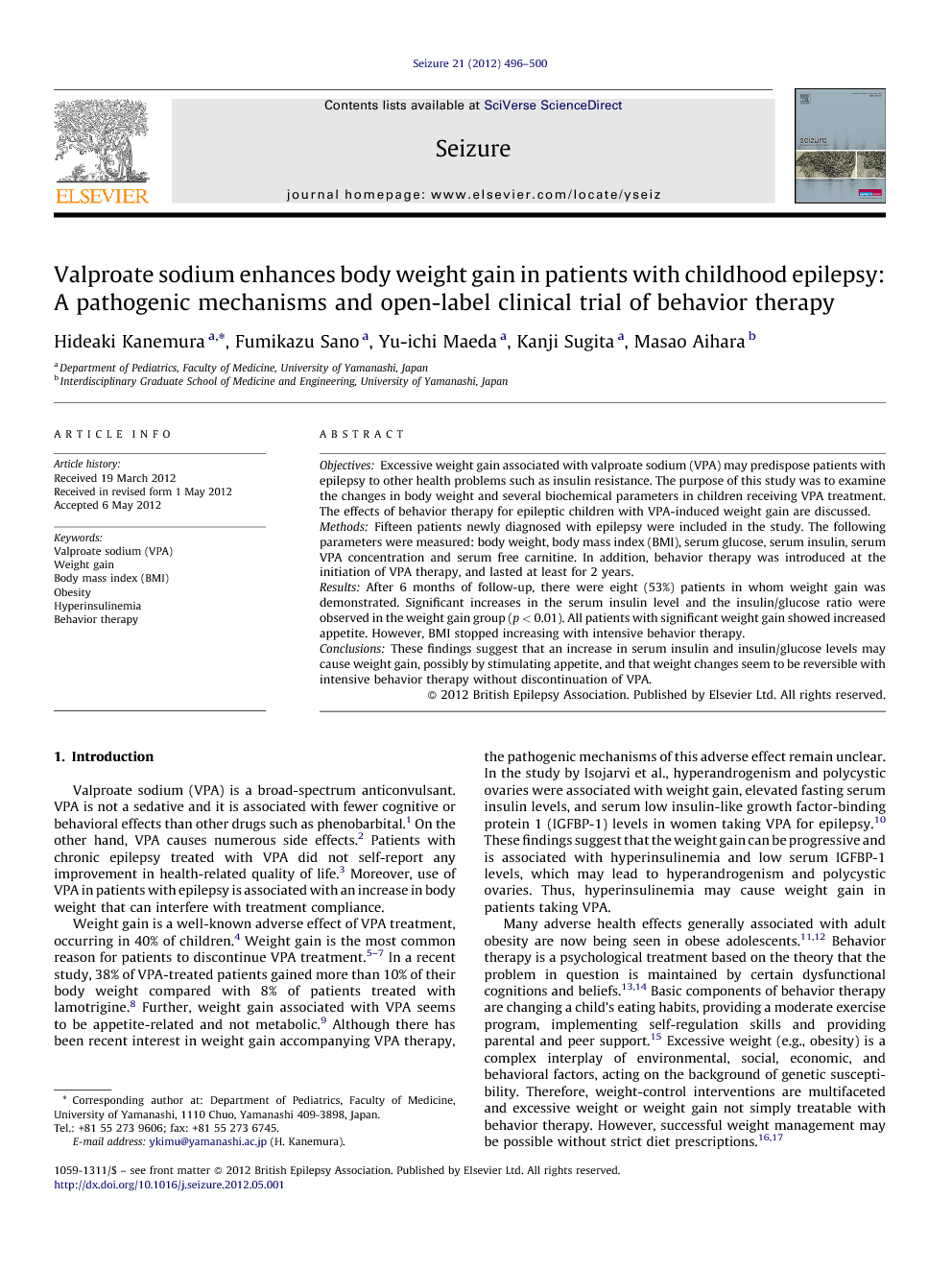ترجمه فارسی عنوان مقاله
سدیم والپروات وزن بدن در بیماران مبتلا به صرع را در دوران کودکی افزایش می دهد؛ مکانیسم های بیماری زا و کارآزمایی بالینی رفتار درمانی دوسویه باز
عنوان انگلیسی
Valproate sodium enhances body weight gain in patients with childhood epilepsy: A pathogenic mechanisms and open-label clinical trial of behavior therapy
| کد مقاله | سال انتشار | تعداد صفحات مقاله انگلیسی |
|---|---|---|
| 30036 | 2012 | 5 صفحه PDF |
منبع

Publisher : Elsevier - Science Direct (الزویر - ساینس دایرکت)
Journal : Seizure, Volume 21, Issue 7, September 2012, Pages 496–500
ترجمه کلمات کلیدی
والپروات سدیم - اضافه وزن - شاخص توده بدن - چاقی - هیپرانسولینمی - رفتار درمانی
کلمات کلیدی انگلیسی
Valproate sodium (VPA), Weight gain, Body mass index (BMI), Obesity, Hyperinsulinemia,Behavior therapy,

